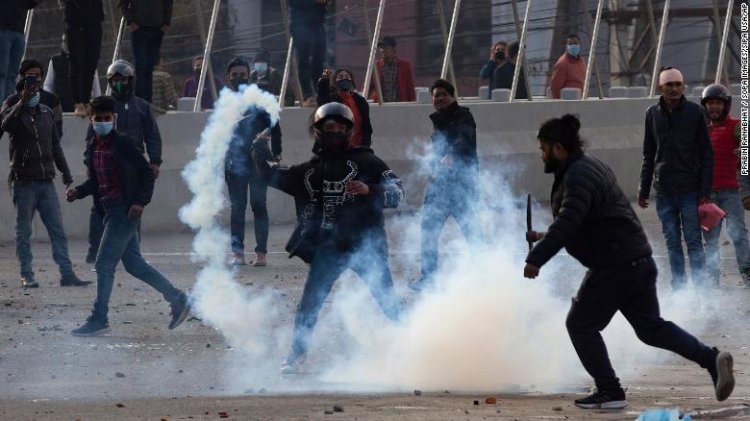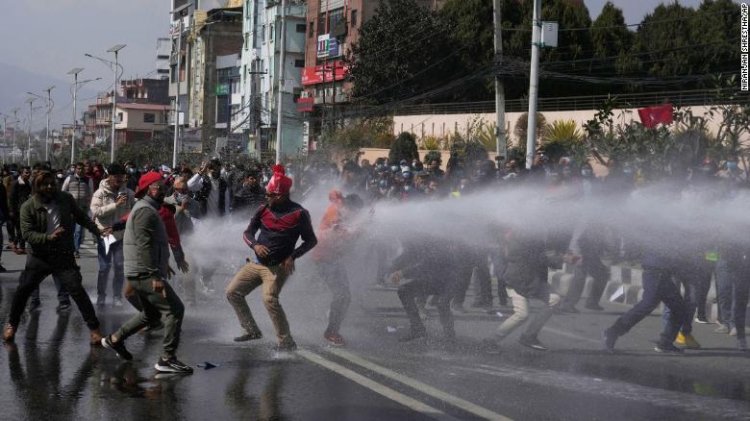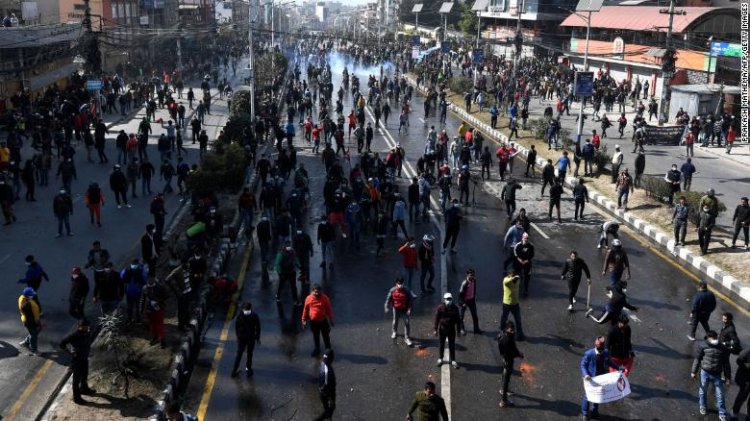Nepalese police use tear gas and water cannons to disperse protesters over a 'gift' from the United States.
Despite loud protests, Minister of Communication and Information Technology Gyanendra Bahadur Karki presented the deal in parliament, claiming that the projects would assist 24 million people out of Nepal's 30 million. "The award will be a critical tool for the country's socioeconomic development," Karki said in parliament.

Witnesses and officials in Kathmandu said police used tear gas and water cannons to disperse demonstrators opposing a US-funded infrastructure initiative that was presented to parliament for passage on Sunday.
According to them, some protestors were injured during the fights.
In 2017, the Millennium Challenge Corporation (MCC), a US government aid agency, committed to supporting a 300-kilometer (187-mile) energy transmission line and a road repair project in Nepal with $500 million in funding.
Officials from the government say the money would not have to be repaid and comes with no strings attached, but critics believe the pact could jeopardize Nepal's laws and sovereignty since lawmakers will have insufficient supervision over the board overseeing the infrastructure project.

Despite loud protests, Minister of Communication and Information Technology Gyanendra Bahadur Karki presented the deal in parliament, claiming that the projects would assist 24 million people out of Nepal's 30 million.
"The award will be a critical tool for the country's socio-economic development," Karki said in parliament.
The government coalition's major political parties are divided over whether to accept or reject the US grant money.
The $500 million MCC award, according to the US Embassy in Nepal, is "a gift from the American people and a partnership between two countries that will bring jobs and infrastructure to Nepal and enhance Nepalis' lives."

"This project was requested by the Nepali government and the Nepali people, and it is designed to transparently reduce poverty and improve Nepal's economy," the embassy said in a statement late Saturday.
"Whether Nepali authorities ratify the MCC is a decision for Nepal to decide as a sovereign democratic nation, and Nepal's decision alone," the statement continued.
Nepal is significantly reliant on foreign aid, and the Nepal Development Forum, whose members include donor countries and international financial institutions, coordinates development aid strategy.

 Boakyewaa Lawrencia
Boakyewaa Lawrencia 



































